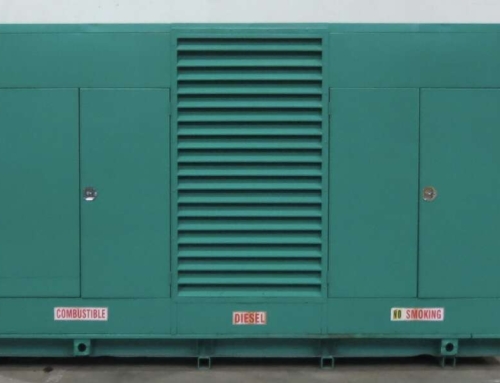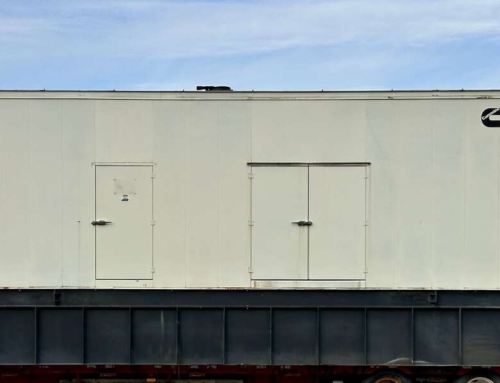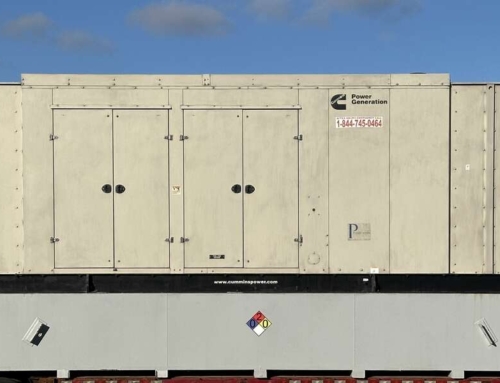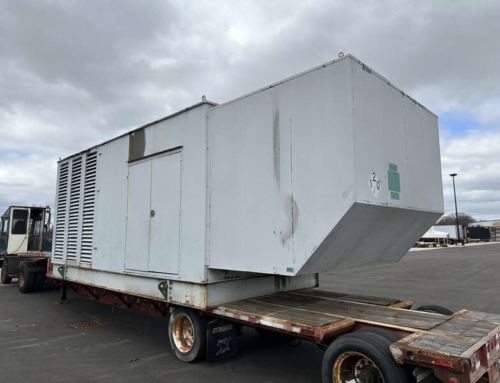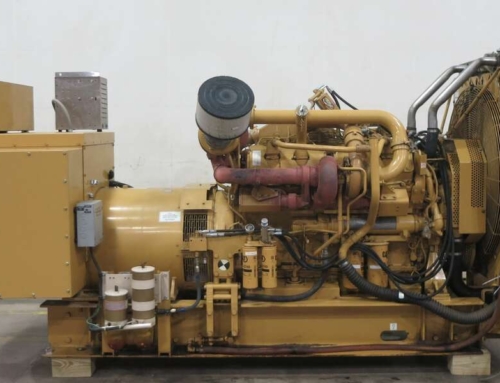Generators are dependable and efficient alternative sources of power that are accessible and handy in emergencies such as power outages. While many industries depend on various kinds of generators, diesel generators have stood out as the most popular choice across multiple industries due to their numerous benefits. A diesel generator requires fewer components to generate electricity, which results in low maintenance. Moreover, their fuel consumption rate is lower than that of other generators, which makes them fuel efficient and durable.
Even though all these benefits make diesel generators a prioritized option within several industries, the generation of heat during operation can be a concern. It is crucial to learn how to calculate the heat rate to effectively monitor and manage the efficiency of diesel generators.
Factors Affecting the Heat Rate of Diesel Generators
There are many aspects on which the heat rate of diesel generators is monitored. They are:
Heat Rate Degeneration
The heat rate of diesel generators moves down as their efficiency or capacity to create electricity enhances over time. Via estimation, the heat rate of simple cycle units reduces at a rate of 0.2% each year. However, the heat rate of combined cycle units moves down by 0.05% every year.
Fuel Cost
The performance of a power generator does not remain the same each day. Its output differs on different days, and hence, it becomes difficult to calculate its accuracy and efficiency. This fluctuation in capacity creates multiple heat rates, which affects the cost of the fuel. The total cost of fuel is calculated by multiplying the heat rate with the cost of fuel per Btu.
Heat Rate Formula
The heat rate represents the complete amount of energy needed by an electric generator to create electricity worth 1 kWh.
This is the rate of input required to create unit power. The ratio of electric output to thermal inputs is known as the heat rate. The higher the efficiency, the lower the heat rate. In a thermal power supply, output and input energy are measured in a similar unit. The amount of heat generated is proportional to the chemical energy supplied, which is later divided by the electrical energy freed.
The word efficiency stands as a non-dimensional measure, and heat rate is also not dimensional but is mostly expressed as energy per energy in specific quantities. A kilowatt-hour is used to refer to electric current, and Btu is used for thermal energy.
How to Calculate The Heat Rate of a Diesel Generator?
Heat rate represents the thermal efficiency of the diesel generator, which is usually expressed in British thermal units per kilowatt hour. Calculating heat rate by multiplying the energy output of the fuel utilized to create electricity by the quantity of electrical energy generated.
Input of Total Heat
The chemical energy in the fuel is transformed into heat energy through the oxidation process. The heat capacity of a fuel is referred to in BTU units. The remainder of this fuel gets lost, such as water loss, dry fuel, gas loss, radiation/convection losses, unburn loss, and more. This excess heat generated from the fuel is utilized on the basis of boiler efficiency.
The heat generated in the boilers due to oxidation is utilized to produce high-temperature, high-pressure steam. Hence, the generated vapor is transported into the gas turbine, where the heat energy is transformed into kinetic energy, mechanical energy is present in the steam turbine, and electrical energy is generated in the generator.
The heat rate equation is:
Rh = Ws × c × ΔT
Where,
Ws = the steam flow
Rh = rate of heat
ΔT = the temperature gradient
c = specific heat capacity
To clearly understand the calculation of the heat rate of a diesel generator, refer to the example given below:
- Calculate the heat rate if vapor visits a rotor at 400°F and departs at 200°F at atmospheric pressure. During this operation, 500 LB of steam moves through the rotor each hour.
ΔT = 400 – 200
ΔT = 200°F
Rh = Ws × c × ΔT
Rh = 500 × 0.48 × 200
That equals, Rh = 48000 btu/hr
Boosting Diesel Generator Efficiency With Central States Diesel Generators
The efficiency of a generator is something that can be enhanced over time and stays within control. Its efficiency relies on the fuel quality used, equipment quality and maintenance. Hence, there are multiple ways of increasing the efficiency of your diesel generator. Each generator is created for optimized performance and offers energy output at the higher end of the spectrum.
If you have been experiencing low functionality in your diesel generator, replace your generators with Central States Diesel Generators, as we offer the best range of generators that are highly durable, reliable, efficient, and come with longer lifespans.
Common Questions About the Heat Rate of Diesel Generators
Q1. Mention the heat rate unit for a generator.
According to the U.S Energy Information Administration, heat rate is expressed in British thermal units BTU per net kWh generated.
Q2. What is the highest temperature range that diesel generators reach?
Basically, the temperature of diesel generators reaches between 190 to 220°.
Q3. Mention the formula for the heat generation rate.
The formula for heat generation rate is Q = m / c ∗ Δ T, where Q represents heat, m is mass, Delta T is temperature difference, and c is heat capacity.
Q4. Is heat rate equal to power?
Yes, power includes units of energy per unit time, wherein heat transfer power is the heat energy transferred per unit time. This is also called the heat flow rate.
Q5. Which is the most used coolant in diesel generators?
Water is the coolant satisfyingly used in diesel generators.
Q6. Mention the normal temperature range of a generator.
The normal temperature range of a diesel generator falls between 70°C to 90°C.
Q7. Why do generators become hot?
Some common issues that may cause generators to become hot include insufficient coolant levels because of overuse of coolant or external and internal leaks caused by leaking gaskets or loose clamps.
Q8. What is heat rate?
The energy (fuel) required to produce one kWh of electricity, measured in BTU/kWh.
Q9. Why does heat rate matter?
A lower heat rate indicates better efficiency, reducing fuel consumption and operational costs.
Q10. How to improve heat rate?
Maintain equipment, optimize load, use quality fuel, and consider technological upgrades for better efficiency.



